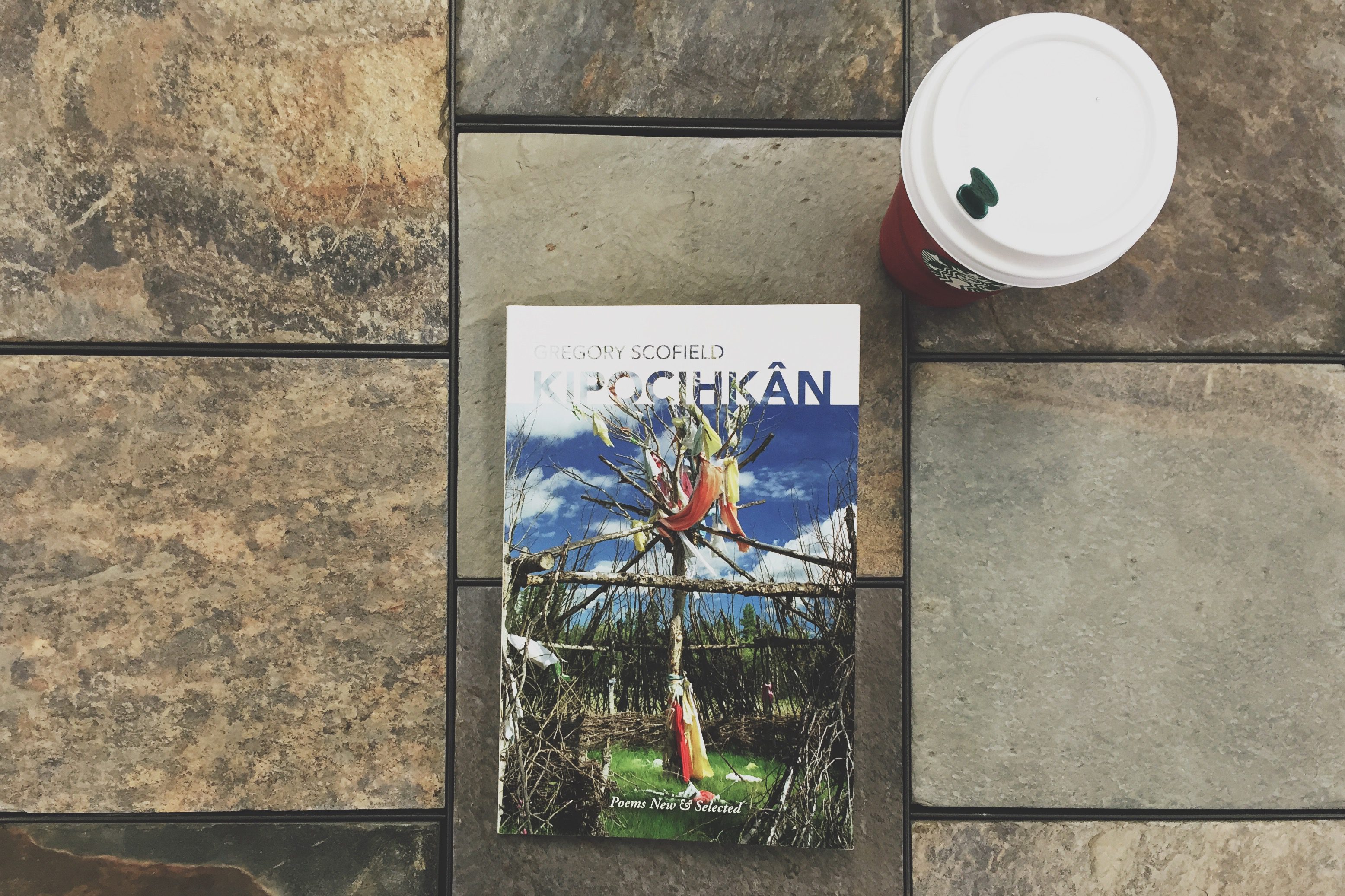
I have been a fan of Scofield’s writing since I was introduced to his work in 2002 – I read Love Medicine and One Song, as well as Thunder Through My Veins in my undergrad at St. Peter’s College then at the University of Saskatchewan. Since then, his work has always been a place to go for a new point of view and to remind myself that indigenous poetry can be many things – positive, sexual, deep, lighthearted and so on. Scofield does not fit into a “type” or “style” of writing so much as he explores many forms of writings and expression.
A few poems that stood out for me…
Conversation with the Poet (p.104). I liked this poem as he prefaces it with context of how the voice is supposed to sound and the fact that this poem is a translation from Cree to English. This poem is an example of the forms that I want my eventual thesis to take – I want to take storie that already exist orally and give them a form in written language that allows for their natural rhythms to come through. I like that he uses Cree language in his poem, and I like even more that he does not other the language by placing it italics. The only time the Cree is italicized is when the language is being spoken by his Aunty, so it’s the spoken word being presented as opposed to the Cree language in itself.
Dissertation (p.125) in his section of New Poems. I love how he separates himself from the Poet who exists within him, and how he gives her a different biological gender than his own. Right away we are being presented with a duality, and a conflicted duality at that. And it’s telling that “he” loses himself in the Poet – it is the poet who takes away his Indian speech, adding it to her own, giving it authentic flavour. I could read and re-read this poem and still come away with a different meaning every time.
I’ll Teach You Cree (p.141) is a celebration (eeee) of food and language and lust and love. He uses strong images such as “a crawling-out ceremony / that cannot be translated” and “you will have the mouth of a beaver, / thick and luminescent.” The repetition of “hâw, pikiskwe” (Now, speak!) is a command and loving reminder to speak the language, in order to remember it. To use the language in order to understand it.
I think this book is an excellent example of the growth and various styles of Scofield’s work, and I enjoyed reading it. His content matter is sometimes dark, but perhaps I feel that more after reading North End Love Songs right before this, as it deals with loss and broken-ness throughout as well. But mixed in with Scofield’s writing is the inherent joy of who he is, even as he struggles to identify and against others preconceived notions of who he is. He finds joy in the connection he has through his Aunts and Mothers, his relations. He finds joy in the sensuality of his life, in his relationships. He finds joy in claiming his part in this world, a world that he sees as pushing him out. It’s a survival tale, one that speaks to many levels.
Book:


